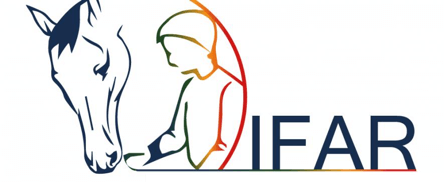Following the immensely successful International Forum for the Aftercare of Racehorses (IFAR) Conference held in Melbourne earlier this year, the IFAR Steering Group has announced a webinar led by applied behavioural scientist Dr. Denise Goodwin scheduled for 24 October. The webinar will focus on the role of behaviour change in equine welfare.
Co-Director of Health & Social Programs at BehaviourWorks Australia, at Monash University, Denise specialises in translating research evidence into policy and practice. She also serves as a member of Racing Victoria’s Equine Welfare Committee, where she applies her skills to help promote the safety and welfare of the racehorse at all stages of the horse’s life.
“We are delighted to welcome Denise to the IFAR webinar,” said IFAR Chair Di Arbuthnot. “Her expertise and knowledge will certainly add value to the future of our sport. With the current climate’s focus on horseracing, her skills in translating research into policy and practice will help us all to communicate about the importance of the safety and welfare of Thoroughbreds throughout their lives.”
During the Asian Racing Conference (ARC), which was held in the days immediately following the IFAR Conference, Denise presented on how the long-term success of racing depends heavily on the standards and approaches to the health, wellbeing, and treatment of the sport’s equine athletes throughout their lives, and society’s acceptance of them.
Her powerful presentation began a conversation that will be continued via the upcoming webinar, which will provide an in-depth look at the topic and be followed by a question-and-answer session.
The IFAR webinar will specifically focus on who needs to do what differently in racing and how to achieve those goals. Denise’s presentation will examine why behaviour change is necessary, three common mistakes in changing behaviour, the importance of problem definition, and drivers of behaviour.
Denise’s academic expertise is built on three pillars central to successful real-world impact: synthesising research knowledge; contextualising this knowledge against practice within complex systems through consultation with government, industry professionals, citizens and other groups; and using the information gained to develop, test and embed behaviour change.
Registration details for the IFAR webinar will be released in advance of the event.
